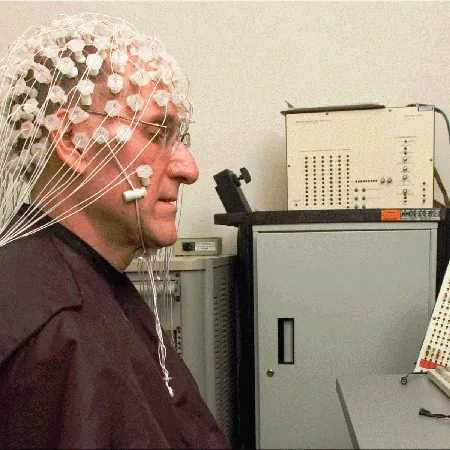
The Mystifying Mystery of Black Hole Evaporation: Are We on the Brink of a Breakthrough?
2024-12-22
Author: Amelia
The Birth of a Revolutionary Theory
In 1974, renowned physicist Stephen Hawking introduced a groundbreaking theory suggesting that black holes, which are known to trap everything including light, could actually release particles. This revelation proposed that as black holes eject these particles, they gradually lose mass, ultimately leading to their evaporation and potential explosion over unimaginably long periods.
A Clash of Theories
For over five decades, this provocative idea has ignited intense debate within the scientific community, pitting the principles of general relativity against those of quantum mechanics. These two foundational theories are pillars of modern physics, yet Hawking's predictions suggest that they may not coexist harmoniously in our understanding of the universe.
The Mechanism of Evaporation
So, how could a black hole evaporate, leaving behind no trace? The conundrum lies in the theoretical frameworks still being explored by physicists today. "We’ve spent the last 50 years fighting about it," states Daniel Harlow, a physicist at MIT. "Now, we have a much clearer understanding than Hawking did at the time."
Black Hole Formation
The origins of black holes can be traced back to Albert Einstein's general relativity in 1915, which posited that gravity is a consequence of the curvature of space-time. Black holes are formed when massive stars collapse into a singular point, where gravitational forces become so intense that not even light can escape.
Challenging the Impenetrability
Heino Falcke, an astrophysicist at Radboud University, emphasizes that under general relativity, "everything can only go inside a black hole, and nothing can ever come out." However, Hawking's revolutionary calculations indicated that black holes might not be as “impenetrable” as once believed.
Understanding Hawking Radiation
Hawking's theory relies on the behavior of quantum particles, which spontaneously appear and disappear in pairs, known as particle-antiparticle pairs. At the event horizon—defined as the point of no return surrounding a black hole—one of these particles can be swallowed, while the other escapes, resulting in what is termed Hawking radiation. As more particles are emitted, black holes lose energy and mass over time, ultimately leading to their evaporation—a process that would take longer than the current age of the universe for a black hole the size of our sun.
Detecting the Elusive Radiation
However, to date, researchers have found it challenging to detect Hawking radiation, as it is incredibly faint. Some scientists are exploring small black holes in laboratories as they are theorized to evaporate more quickly than their larger counterparts scattered throughout galaxies.
The Information Paradox
Yet, with the promise of black holes evaporating comes a perplexing enigma known as the black hole information paradox. Should a black hole evaporate completely, what happens to the information regarding the matter that passed inside? This dilemma raises fundamental questions about predictability in physics, leading to a collision of theories. Harlow notes that every proposed solution compromises some core principle of physics, including predictability itself.
Exploring New Theories
The path to resolving this paradox varies: some researchers are delving into thermodynamics' principles and the role of entropy, whereas others are exploring locality and the intriguing concept of quantum nonlocality, which suggests that particles within a black hole could share their quantum states with distant particles.
Recent Insights and Future Directions
In a recent 2023 study published in *Physical Review Letters*, Falcke and his team re-examined Hawking's calculations, proposing that information paradoxes may extend beyond black holes, suggesting that perhaps everything is undergoing a form of evaporation. This theory adds an additional layer to an already complex mystery.
Conclusion: The Ongoing Mystery
As research continues, the enigma of black holes and their potential evaporation stands as one of science's most fascinating puzzles, with implications that could reshape our understanding of reality itself. Will we soon unlock the secrets of these cosmic giants, or will they forever remain enigmas lurking in the shadows of the universe? Only time—and persistent exploration—will tell!









 Brasil (PT)
Brasil (PT)
 Canada (EN)
Canada (EN)
 Chile (ES)
Chile (ES)
 España (ES)
España (ES)
 France (FR)
France (FR)
 Hong Kong (EN)
Hong Kong (EN)
 Italia (IT)
Italia (IT)
 日本 (JA)
日本 (JA)
 Magyarország (HU)
Magyarország (HU)
 Norge (NO)
Norge (NO)
 Polska (PL)
Polska (PL)
 Schweiz (DE)
Schweiz (DE)
 Singapore (EN)
Singapore (EN)
 Sverige (SV)
Sverige (SV)
 Suomi (FI)
Suomi (FI)
 Türkiye (TR)
Türkiye (TR)